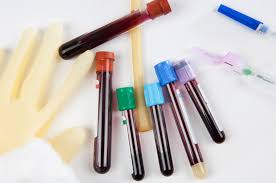Electrolytes are minerals that are found in body tissues and blood in the form of dissolved salts. As electrically charged particles, electrolytes help move nutrients into and wastes out of the body's cells, maintain a healthy water balance, and help stabilize the body's acid/base (pH) level.
The electrolyte panel measures the blood levels of the main electrolytes in the body: sodium (Na+), potassium (K+), chloride (Cl-), and bicarbonate (HCO3-; sometimes reported as total CO2).
A person's diet provides sodium, potassium, and chloride. The kidneys help maintain proper levels by reabsorption or by elimination into the urine. The lungs provide oxygen and regulate CO2. The CO2 is produced by the body and is in balance with bicarbonate. The overall balance of these chemicals is an indication of the functional well-being of several basic body functions. They are important in maintaining a wide range of body functions, including cardiac and skeletal muscle contraction and nerve impulse conduction.
Any disease or condition that affects the amount of fluid in the body, such as dehydration, or affects the lungs, kidneys, metabolism, or breathing has the potential to cause a fluid, electrolyte, or pH imbalance (acidosis or alkalosis). Normal pH must be maintained within a narrow range of 7.35-7.45 and electrolytes must be in balance to ensure the proper functioning of metabolic processes and the delivery of the right amount of oxygen to tissues. (For more on this, see the condition article on Acidosis and Alkalosis and also on Dehydration.)



 Contact Us
Contact Us







 Hospitals
Hospitals
 Doctors
Doctors
 Diagnostic
Diagnostic
 Pharmacy
Pharmacy
 Health Tips
Health Tips
 Blog
Blog

























Comments